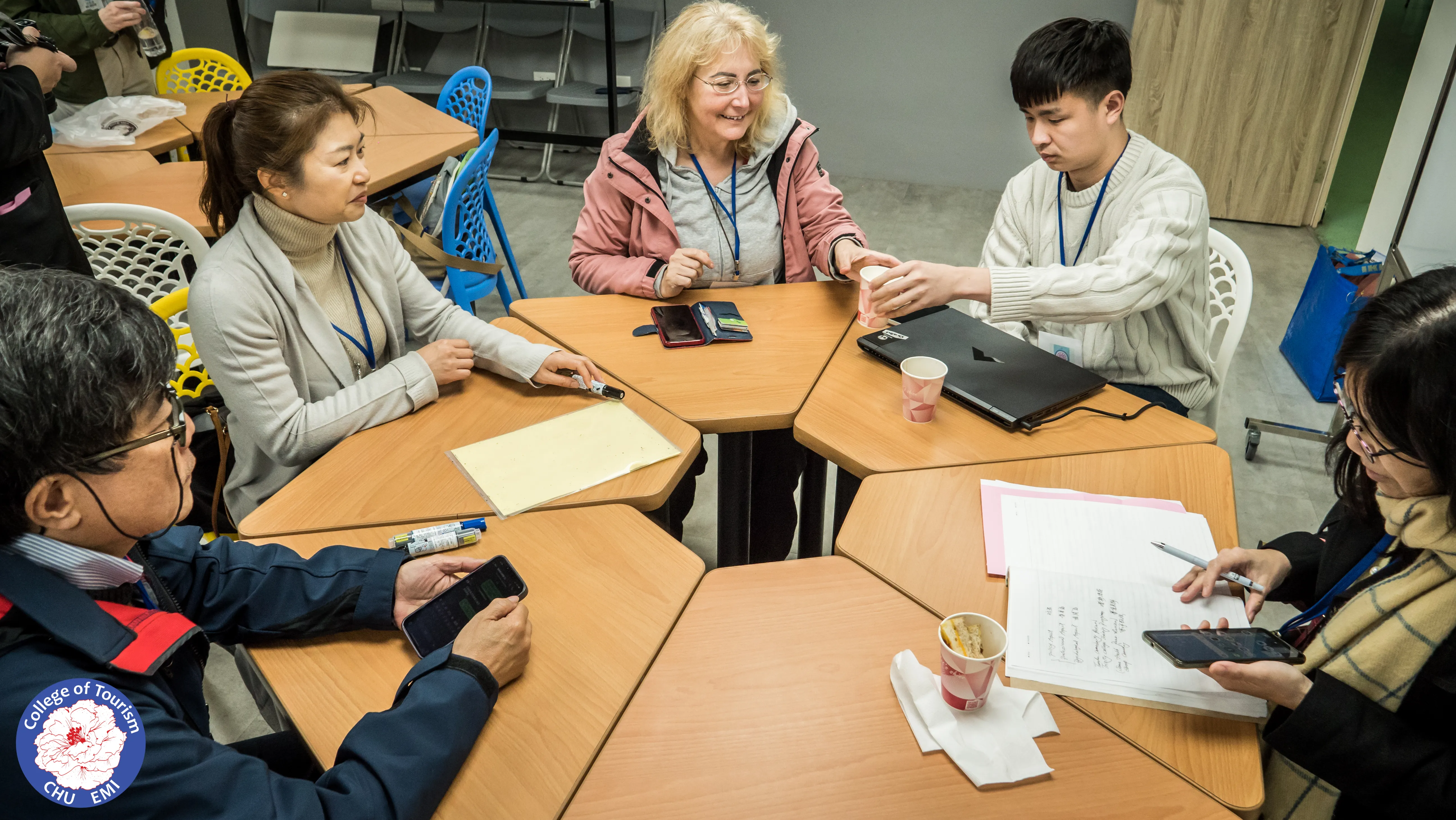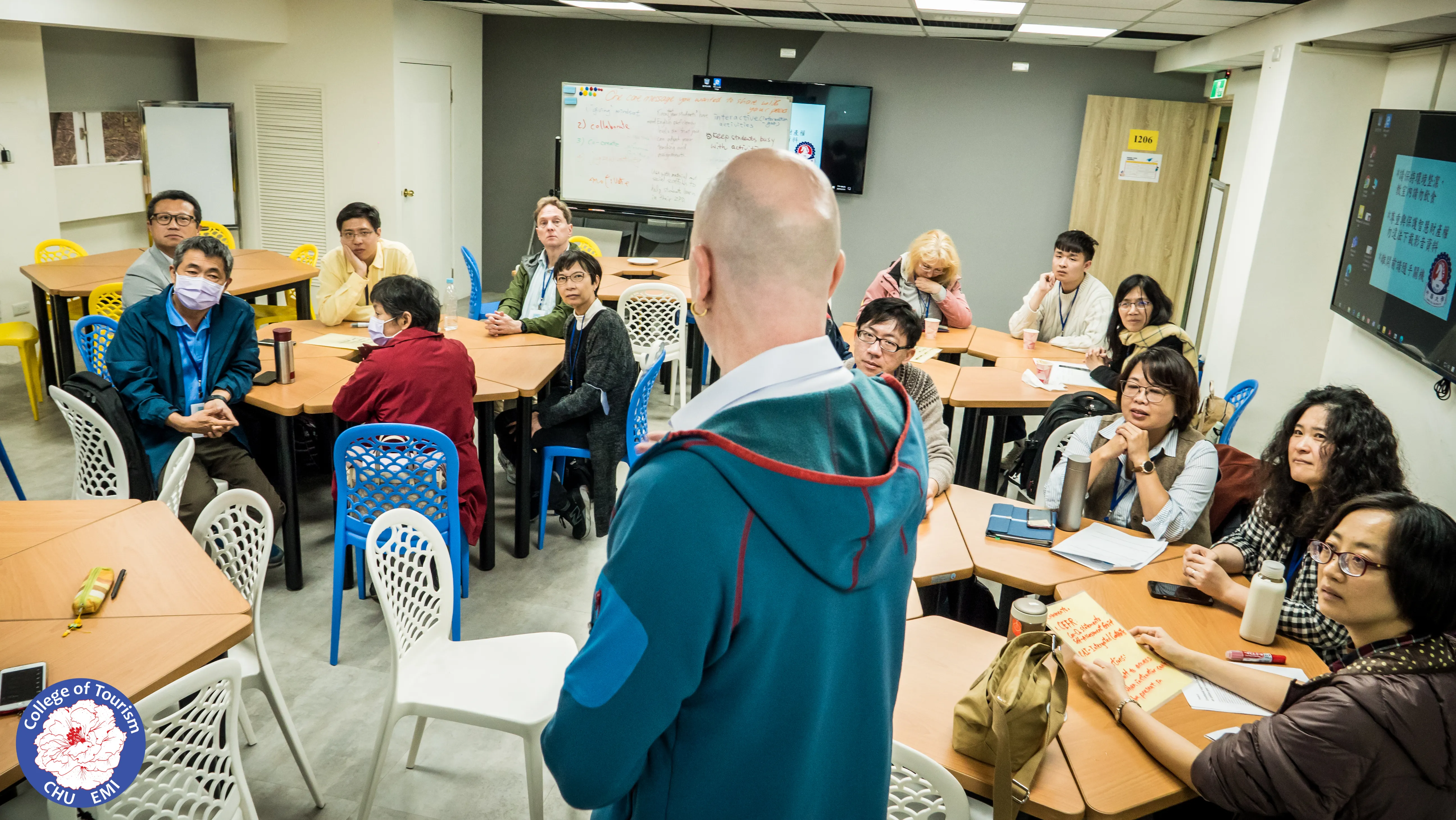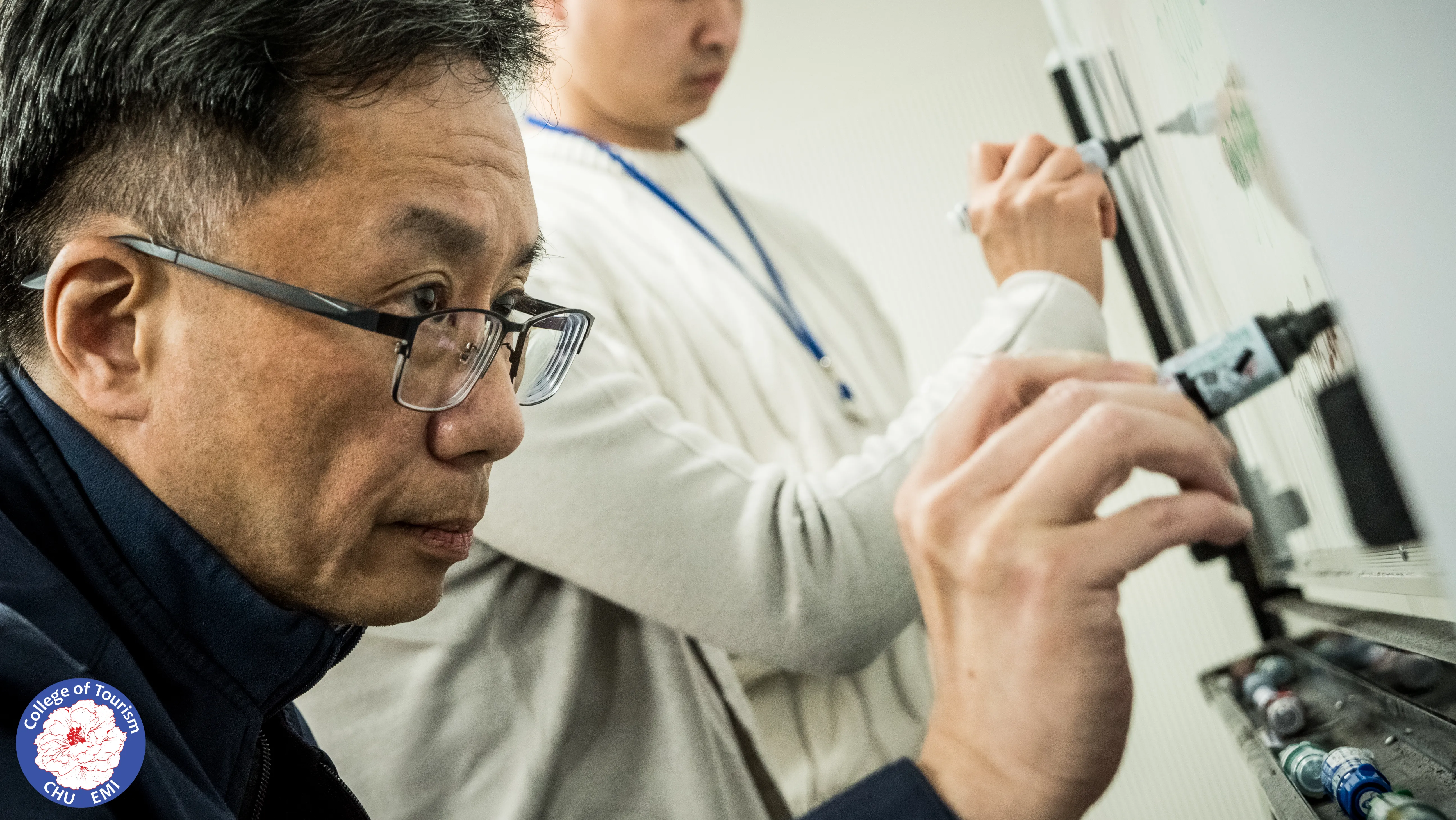Highlights from the Interactive Teaching & Learning Conference jointly held by CHU and NTHU at CHU on February 21st
It was a pleasure to welcome esteemed educators to the Conference on Interactive and Dynamic Teaching & Learning in Hsinchu. Educators, presenters and conference participants worked together effectively to create a vibrant day of collaboration, innovation, and shared commitment to excellence in higher education.
The conference presenters included 18 educators from Taiwan and beyond, who showcased innovative strategies for interactive, group-based, and active learning. The event highlighted how such approaches can transform university education and enhance outcomes for students, lecturers, and institutions across the region.
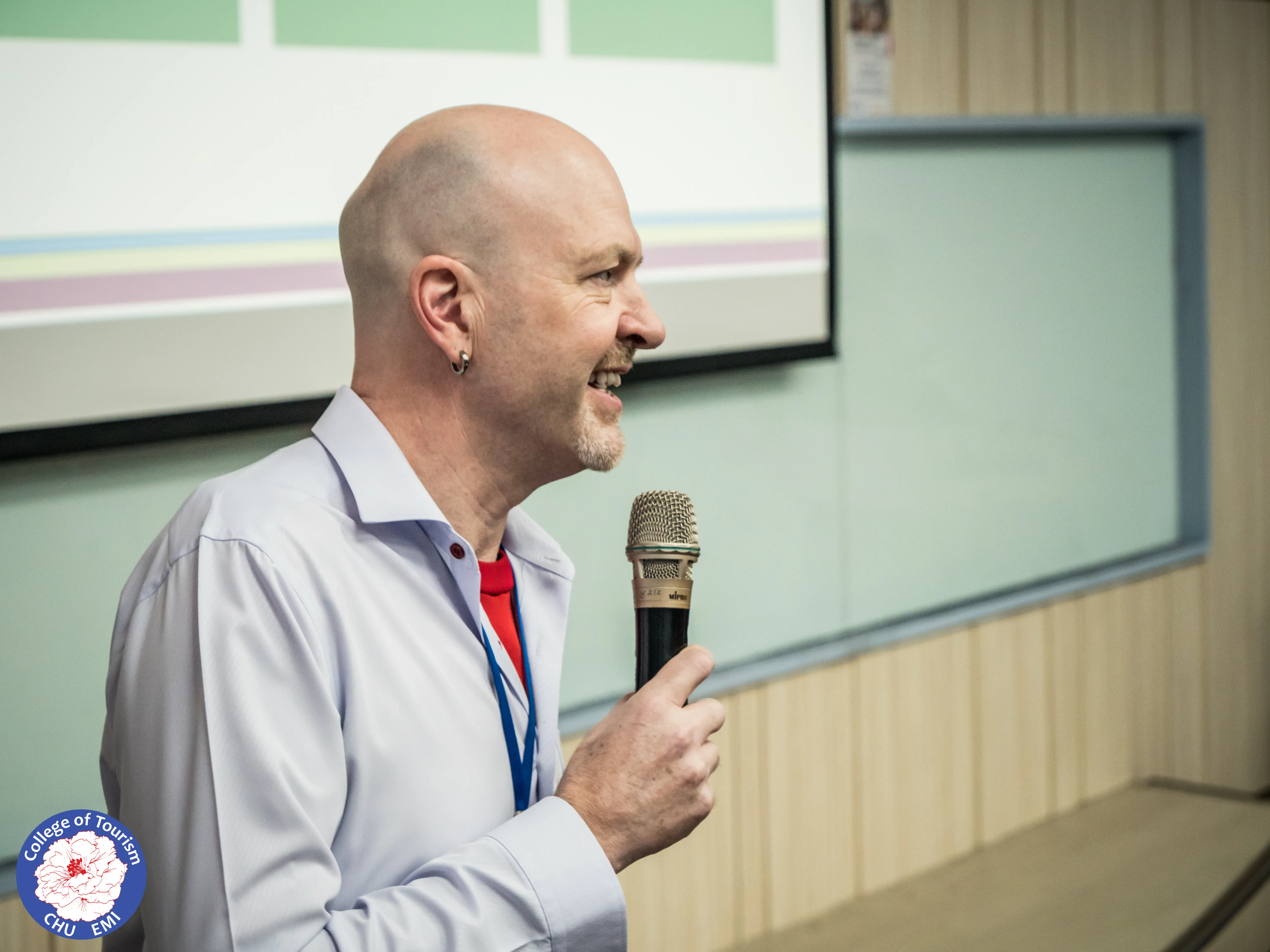
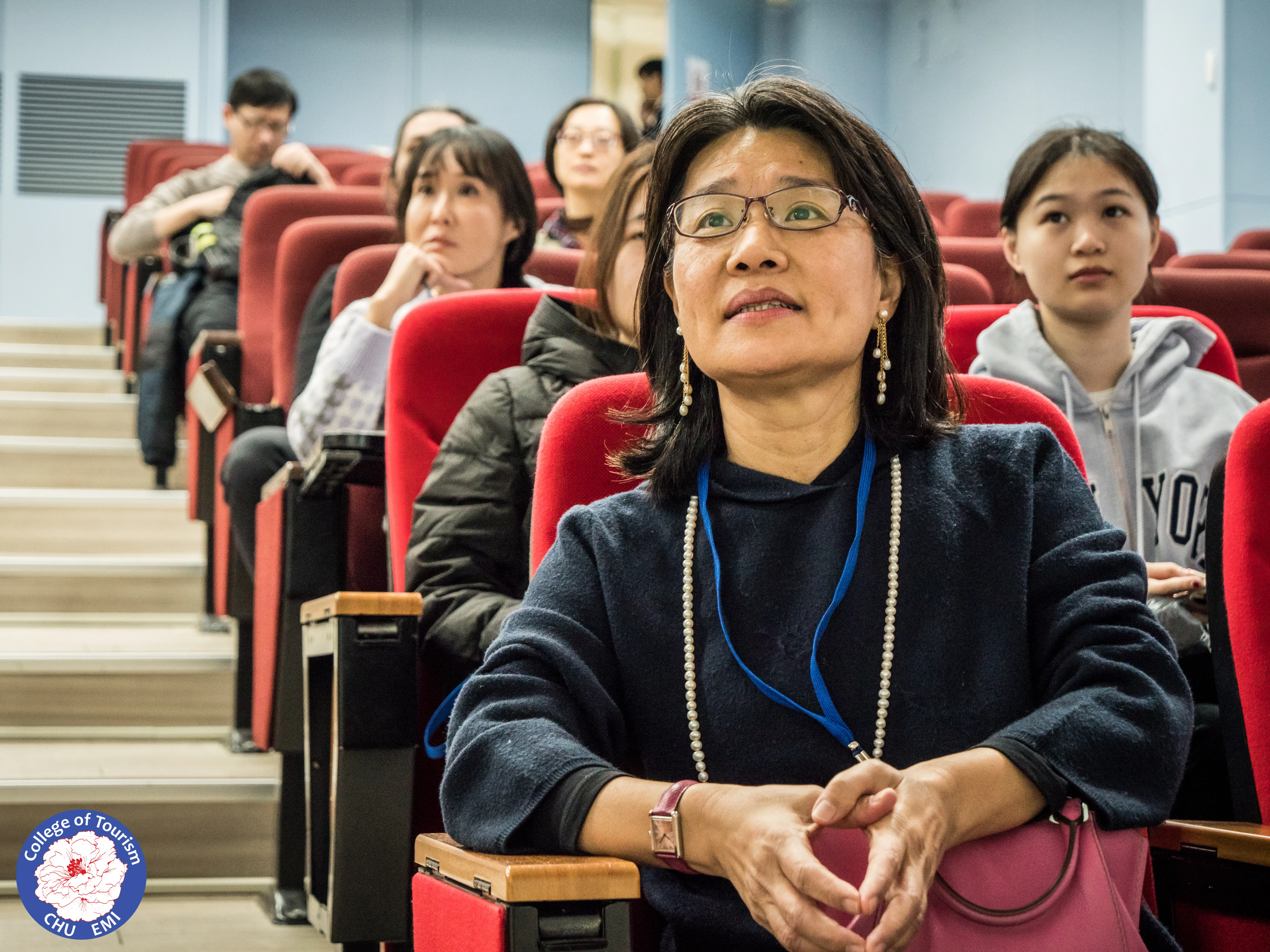
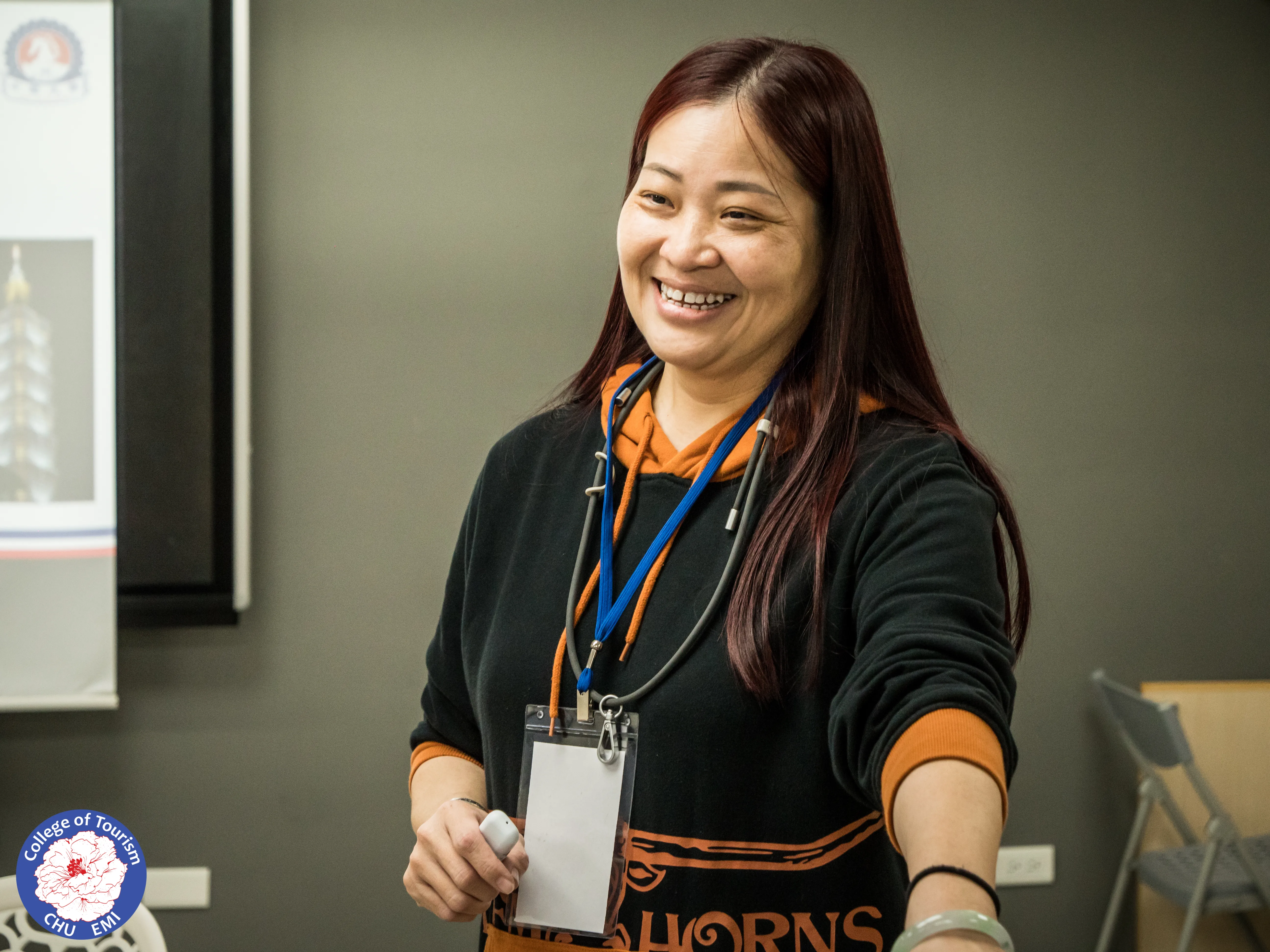
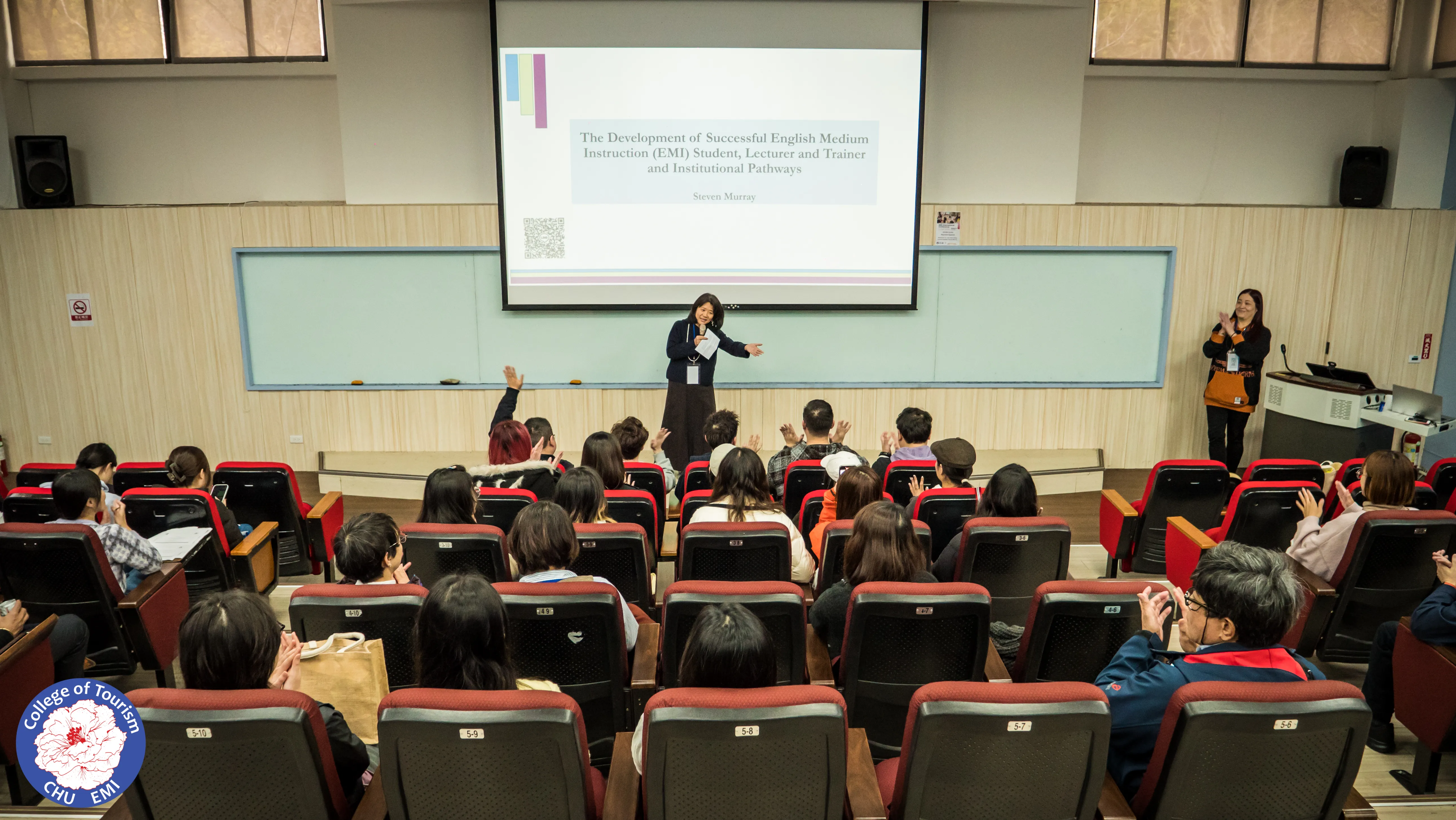
Key highlights included:
- Live demonstrations of interactive classroom techniques that work in a Taiwanese learning and teaching context
- Exploration of long-term professional development pathways, including internationally recognized EMI and CLIL qualifications
- Insights into Trinity College London’s CERT PT accreditation, now delivered through NTHU, CHU and Yuntech for lecturer trainers
- Recognition of NTHU, CHU’s and Yuntech’s role as providers of pathways to accreditation as internationally recognised trainers

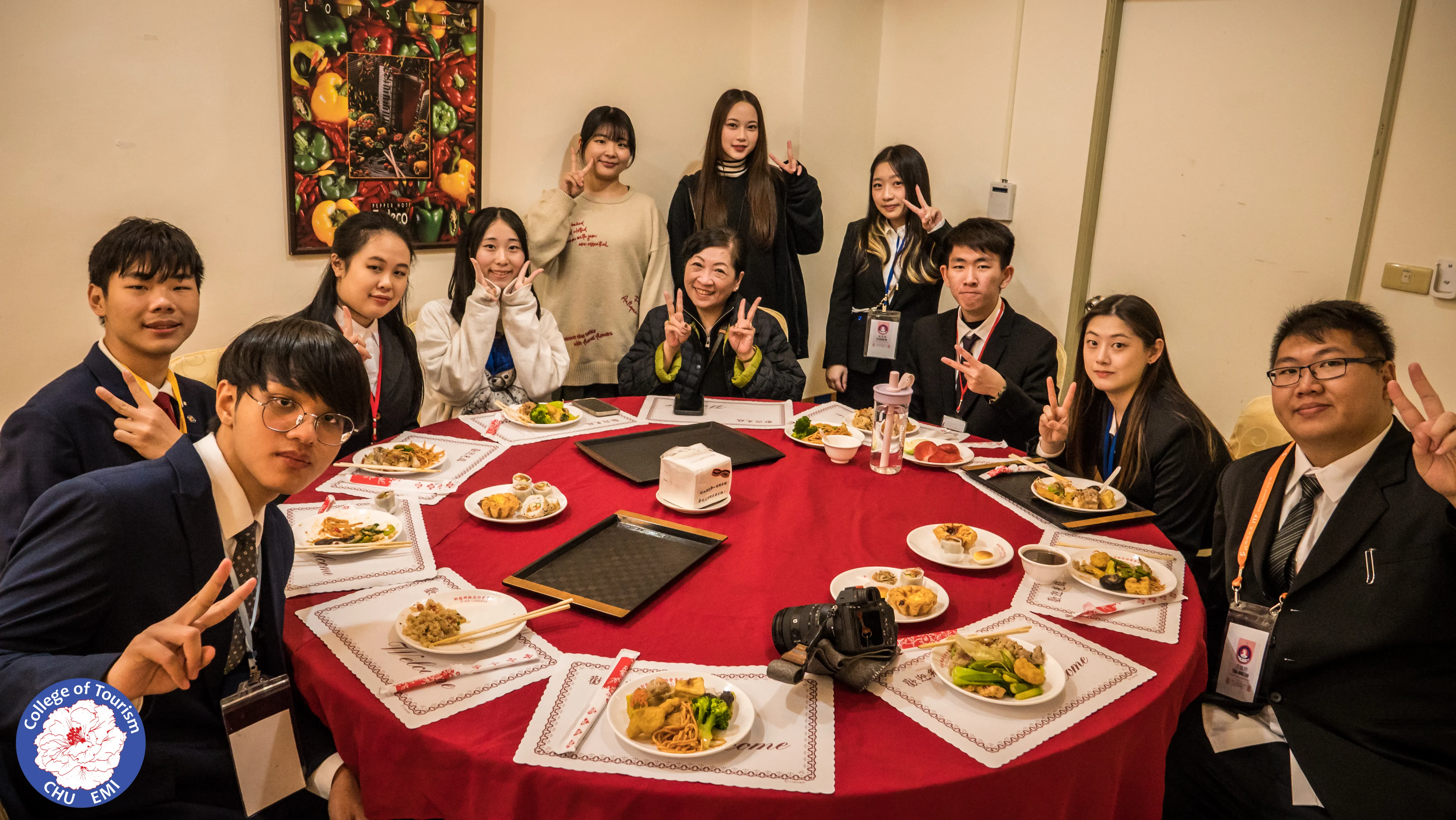
Attendee Information:
A total of 48 educators from a variety of prestigious institutions across Taiwan and beyond attended the conference, reflecting widespread interest in interactive teaching practices. Among the participating universities were National Tsing Hua University, Chung Hua University, Feng Chia University, Kaohsiung Medical University, and China Medical University, along with other key institutions like National Taipei University of Nursing and Health Sciences, National Yunlin University of Science and Technology, and National Pingtung University. The conference brought together a diverse range of professors, lecturers, PhD students, and research assistants from these institutions, all eager to explore and share innovative approaches to interactive teaching. In addition, professional development centres such as the LTTC and the NTHU EMI Center were represented, contributing valuable insights on how these institutions are advancing interactive and dynamic teaching methodologies. This mix of academic professionals and emerging educators highlighted the strong and growing commitment across Taiwan’s higher education institutions to adopt cutting-edge pedagogical strategies.
Conference Outcomes
Improved Student Responses
Click for details
Participants at the left with a stronger understanding of how and why interactive teaching leads to better student outcomes. Many lecturers commented on the visible changes in student engagement after implementing active learning approaches. As one professor put it, "I finally see why my students are more motivated—it’s because they feel seen and heard in every session." Several educators appreciated the chance to see live strategies in action, with one noting, "Watching others teach interactively made me realize how much potential I still have to unlock in my own classroom." Others found reassurance in the shared experiences across institutions. "It’s encouraging to know we’re all facing the same challenges—and now we’ve got more tools to tackle them," shared a lecturer from a technical university. The conference also inspired forward-thinking plans, such as faculty-led workshops and classroom peer observations. "The real takeaway is that interactivity doesn’t mean chaos—it means purpose," reflected one participant. Another summed it up best: "This isn’t just a method. It’s a paradigm shift." With new strategies, insights, and a supportive network, educators returned to their campuses equipped to embed interactive practices more deliberately and sustainably in their teaching.
Long Term Professional Development Pathways
Click for details
The conference underscored the urgent need for effective, practical training in 21st-century pedagogy for university educators. As teaching in higher education continues to evolve, participants agreed that traditional lecturing alone is no longer enough to meet the needs of today’s learners. "We need to teach the way students learn now—not the way we were taught 20 years ago," one senior lecturer reflected. Across disciplines, professors shared how targeted training in interactive strategies, EMI, and CLIL had transformed not just their classroom delivery, but also their broader understanding of learning design. "The training helped me see that pedagogy is not just theory—it’s what we do every day to help students succeed," said a physics professor. Many highlighted the value of peer discussion and shared reflection during the conference, with one participant noting, "It’s the first time I’ve felt part of a teaching community that’s serious about quality in the classroom." The emphasis on intentional design, feedback, and learner autonomy resonated deeply. As one educator put it, "We’re not just delivering content—we’re developing thinkers." Another added, "Training like this gives us the confidence to innovate, knowing we’re grounded in good practice." For many, the event reinforced that professional development is not optional—it is essential and well received when it's effective.
Material’s Development
Click for details
A major outcome of the conference was the recognition that creating interactive, student-centred materials is a key skill for modern educators. Professors and lecturers across disciplines acknowledged the growing need to move beyond static slides and outdated handouts. "Students today expect more—they want to be involved, not just spoken to," remarked a language instructor. Through hands-on workshops and peer sharing, participants explored ways to design tasks that promote critical thinking, collaboration, and real-world relevance. "I used to focus on what I wanted to teach. Now I’m thinking about how students will use the material to learn," said a lecturer from the engineering faculty. The sessions encouraged educators to rethink digital tools as more than just add-ons. "This was the first time I really understood how to use tech to build interaction, not just present content," shared one participant. Many found that developing effective materials required both creativity and alignment with clear learning goals. As one professor reflected, "When students can engage with materials actively, learning becomes more memorable." Another added, "This conference gave me the inspiration—and the practical tools—I needed to start redesigning my materials for the students I have today, not the ones I used to have."
Internationally Recognised Training Pathways
Click for details
The conference provided a valuable opportunity for educators to deepen their understanding of Trinity College London’s CERT PT programme, a structured and internationally recognised pathway for lecturers to become accredited teacher trainers. For many, this was the first time they had encountered a programme designed specifically to professionalise training in higher education. "What stood out is that CERT PT isn’t just another certificate—it’s a rigorous, reflective process that actually builds capacity," shared one academic developer. The programme’s focus on local relevance and global standards resonated strongly. "Having Taiwanese lecturers trained to international standards means we’re no longer dependent on external consultants—we’re building expertise from within," said a senior EMI coordinator. Several participants described how this approach offers more sustainable and scalable solutions for training across institutions. "We finally have a framework that respects both our context and international benchmarks," noted a CLIL specialist. Others expressed hope that institutional leaders would recognise its long-term value. "If funders could see the impact this has on teaching quality, I think they’d back it more readily," remarked one administrator. Another summed it up clearly: "This is the kind of programme we’ve needed for years—practical, credible, and rooted in our own academic culture."
Governmental Support
Click for details
Participants expressed appreciation for the Ministry of Education’s forward-thinking support of professional development programmes that align with international standards while addressing local needs. Many recognised that initiatives like the CERT PT programme could not thrive without such backing. “It’s clear the MoE understands that quality training drives quality teaching and learning,” said one participant. Government support was seen as crucial in scaling up these efforts, ensuring more educators benefit from sustained, high-impact training. As one university dean put it, “This kind of investment doesn’t just strengthen universities—it empowers the whole higher education system to lead, not follow.”
Explore this holistic, interactive, and thought-provoking training programme — and be sure to join us next time!
